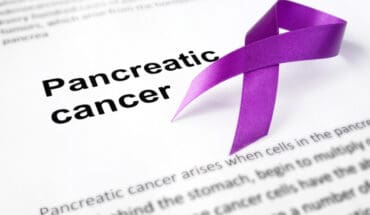A new Oral Cancer Charter has been launched last Thursday by the Oral Health Foundation at the House of Commons. Created as part of November’s Mouth Cancer Action Month, the charter aims to show the necessary steps to reduce cases of mouth cancer and its mortality in the UK.
The charter recommends seven measures aimed at raising awareness, improving early detection, and enhancing patient care. This includes a government-funded mouth cancer campaign, improving access to routine dentistry and improving training for non-dental healthcare staff to recognise signs of mouth cancer.
Professor Tim Newton, President of the Oral Health Foundation says: “As we strive to reduce the number of people affected by this devastating disease, we require coordinated action at many levels. Our charter is a call to action for everyone from the government to healthcare providers to the public at large.
“Early recognition of the signs and symptoms will be crucial when identifying mouth cancer at a point where intervention is most effective. Once individuals with signs that suggest possible mouth cancer wish to discuss their symptoms, there are a range of healthcare professionals that they may approach their concerns Supporting all healthcare professionals to recognise symptoms and make appropriate referral will be key.”
The Oral Health Foundation believes that improving education on the signs and symptoms of mouth cancer, as well as enhancing training for non-dental healthcare providers, can ensure more cases are detected earlier. The charity says this will not only improve the chances of survival, but also significantly enhances the quality of life for those affected.
Other steps included highlighted in the charter include improving referral pathways, supporting the development of better technology, and introducing free dental check-ups and treatment for mouth cancer patients.
“Streamlining referral pathways can only benefit mouth cancer care,” adds Professor Newton.
“By enabling faster access to specialists through direct referrals and one-stop clinics, we can reduce delays and ensure timely treatment, which is vital for improving survival rates.
“We also believe advancing diagnostic technologies such as AI and biosensors could play a significant role in helping detect cancer earlier, providing faster, more accurate results and improving patient outcomes.
“Introducing free dental check-ups for mouth cancer patients, who often require more extensive oral care as part of their recovery, will alleviate the unnecessary and unjust financial burdens they face.”
The House of Commons reception was hosted by Grahame Morris, MP for Easington.
The event featured speeches by Bill Brodie, CEO of Vigilant Biosciences and Mahesh Kumar, Oral and Maxillofacial Surgeon and President of the Mouth Cancer Foundation.
Joe Butler, a mouth cancer survivor from Sheffield, shared his story with the room during the afternoon session. Diagnosed at just 26 years old, his recurring tongue ulcer was detected during a routine dental appointment. Joe highlighted how that visit to the dentist ultimately saved his life.
Earlier this month, the Oral Health Foundation released its new State of Mouth Cancer Report that laid bare the rise in mouth cancer cases.
The latest data collected by the charity shows 10,825 new cases of mouth cancer diagnosed in the UK a year, marking a staggering 133% increase compared to 20 years ago.
The Oral Health Foundation is now inviting people to sign the charter as a show of support.
The seven measures outlined in the Mouth Cancer Charter include:
- Government-funded awareness campaign to educate the public about mouth cancer, its risk factors, and the importance of early detection.
- Improved access to routine dentistry to facilitate early detection through regular dental check-ups, particularly in underserved areas.
- Enhanced training for General Practitioners (GPs) to identify mouth cancer symptoms and facilitate faster referrals, alongside updates to NICE guidelines.
- Improved training for all healthcare professionals (including nurses, carers, and pharmacists) to identify mouth cancer signs and make timely referrals.
- Free dental check-ups and treatment for mouth cancer patients, including restorative care, to reduce financial barriers and support recovery.
- Supporting the development of better diagnostic technologies, such as AI, biosensors, and non-invasive devices, for quicker and more accurate detection.
- Improved referral pathways to speed up diagnosis and treatment, including direct referrals from pharmacists and the adoption of ‘one-stop clinics’ for comprehensive care.
For more information and to sign the Mouth Cancer Charter, visit www.dentalhealth.org/mouthcancercharter .
- The da Vinci 5 Robot Is Set To Transform Bariatric Care: - 31st March 2025
- Beyond money: the hidden drivers fuelling child food insecurity - 31st March 2025
- Tobacco and Vapes Bill - 31st March 2025






